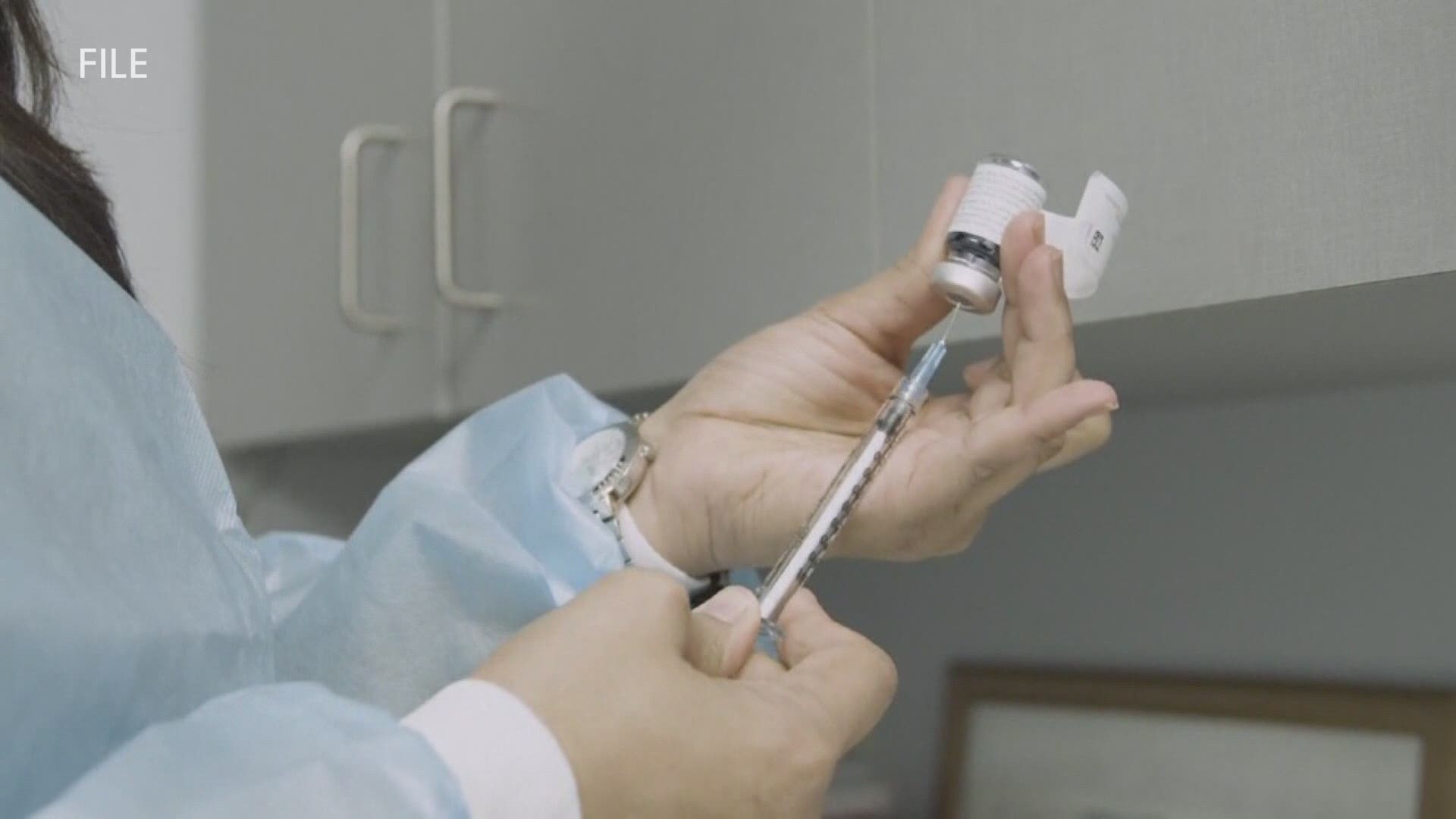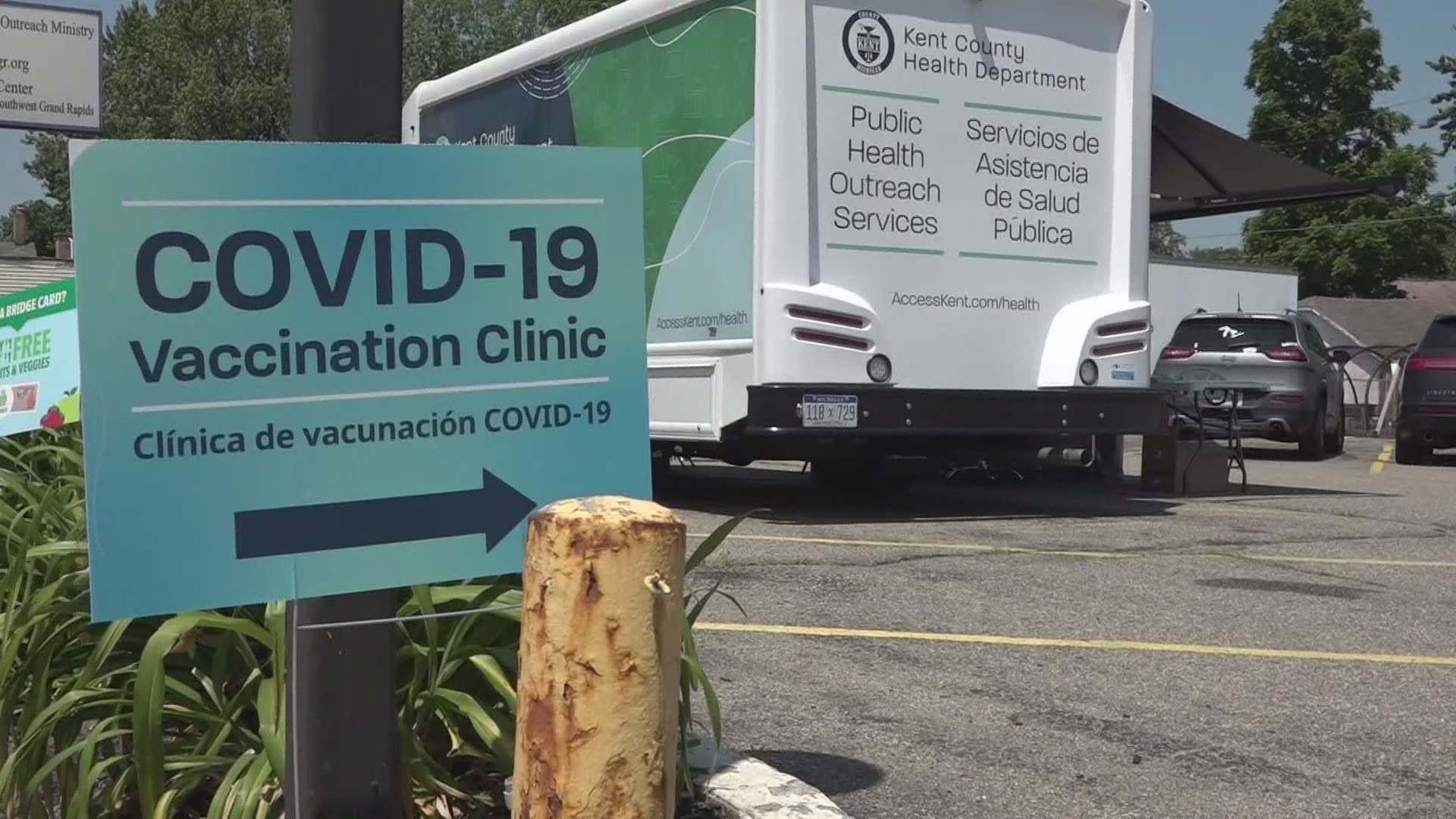MICHIGAN, USA — A few months ago, large-scale COVID-19 vaccine clinics were vaccinating thousands a day. Many people eager for their dose waited anxiously for their eligibility group to open.
Now, that is just not the case.
"It's quite disappointing," said Douglas Hoch, medical director at Muskegon Health Department, "that things just have dried up so much."
Hoch said Muskegon County has around 53% of its eligible adult population vaccinated. And that is good news, but they have not reached herd immunity yet. That is as clinics across the county are seeing not a lot of people come in.
In fact, demand is so low, they have a surplus of doses. Supplies are growing in storage refrigerators, and the county is asking less from the state. Meanwhile, some of the unused doses have begun to expire.
"We're having to dispose a vaccine that expired, without ever being touched," said Hoch. "Untouched vials. And we are supposed to destroy them."
He said unlike many other vaccines, they cannot send them back to the state. Recently, he said they had to destroy 1,200 doses. However, that was more than the average day.
"If we had 75% fully vaccinated, I'd be okay with this situation," said Hoch, "but this is not okay. It is going to circulate, and people are going to get sick."
Muskegon County Public Health is expanding to other venues to get people vaccinated, like setting up a spot at the Muskegon Clippers baseball game Tuesday night.
Meanwhile, in Kent County, epidemiologist Brian Hartl said they are instead keeping their extra doses in storage, frozen. He said some of the expiration times have been extended. Although, they too have not asked for more doses in several weeks.
Hartl said at this phase in the vaccination efforts, they are no longer focusing on large clinics. Rather, they are moving vaccines to health systems, private providers, pharmacies and engaging in mobile vaccination efforts.
"We're seeing gaps in who is vaccinated," said Hartl. "We're seeing a gap in our African American community. We're seeing a gap in our Latinx community. Some rural communities are seeing that as well... We want to get to that point of 70%, that herd immunity number that's always thrown out there. But we really want to target these populations who we see lower numbers or lower coverage of vaccine in those populations."
Hartl said there are many factors as to why the remaining unvaccinated population is not seeking a dose. Those include misinformation, mistrust of health systems and thinking because case numbers are down, the pandemic is over. It is not.
"What we do know about the vaccine is that this technology has been around for a long time," said Hartl, referencing some concern over the speed of the vaccine creation. "And they've tried it out and tested it out for several decades. It just hasn't been used to create a vaccine. So, that's kind of a myth, that it's new technology, because it's been around for a while."
Hartl compared the current situation with the nursery tale "The Tortoise and the Hare." The virus is the hare, and public health with vaccinations is the tortoise. In the race to beat the vaccine, the hare, the virus, has taken a moment to slow down. Now is the chance to continue course on vaccinations, to win the race. There is still a chance numbers could go up, and we could see another surge. Vaccinations protect against that.
Kent County is at about 62% of adult population vaccinated with at least one dose.
RELATED VIDEO: Kent County changes its vaccine strategy by bringing shots to neighborhoods
►Make it easy to keep up to date with more stories like this. Download the 13 ON YOUR SIDE app now.
Have a news tip? Email news@13onyourside.com, visit our Facebook page or Twitter. Subscribe to our YouTube channel.


